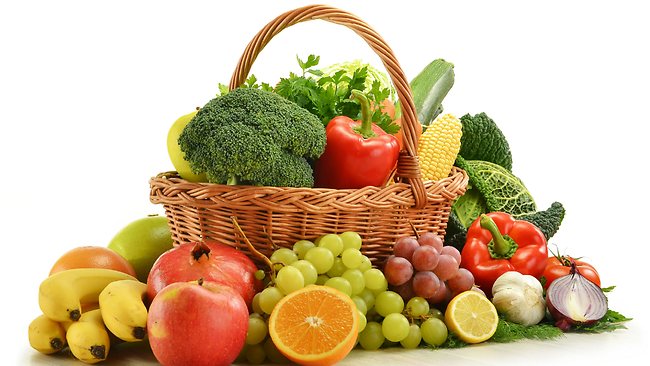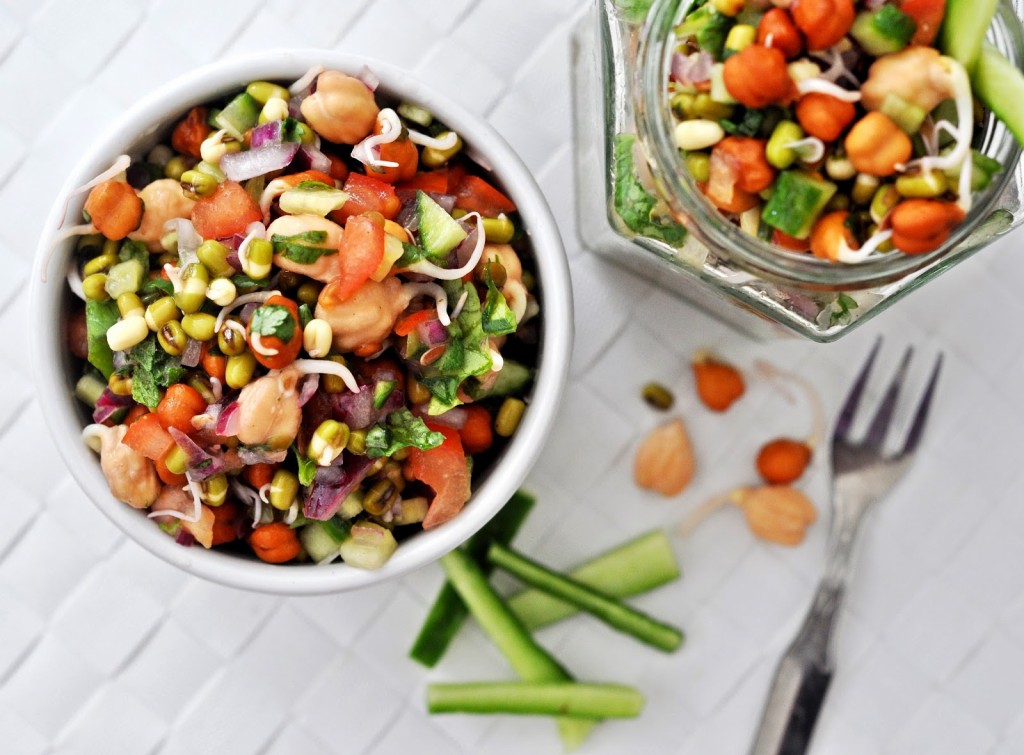Fruits and vegetables are high in vitamins, minerals and fiber – and they’re low in calories. Eating a variety of fruits and vegetables may help you control your weight and blood pressure. Fresh, filling and heart-healthy, fruits and vegetables are an important part of your overall healthy eating plan. The American Heart Association recommends eating five or more fruit and vegetable servings every day. Also variety matters, so try a wide range of fruits and veggies.
Keep it colorful
Challenge yourself to try fruits and vegetables of different colors. Make it a red/green/orange day (apple, green leafy vegetables, carrot), or see if you can consume a rainbow of fruits and vegetables during the week.
Fruit and vegetables
Antioxidants in fruit and vegetables offer protection against heart disease. Fruit and vegetables are also important sources of folate, which helps lower the blood levels of the amino acid homocysteine, which appears to be linked to an increased risk of heart disease.
Foods containing vitamin E
Some studies indicate that vitamin E acts as an antioxidant, helping to protect against ‘bad’ cholesterol. Good sources of vitamin E include almonds, dark green vegetables, vegetable oils and wholegrain products. It is better to eat foods containing vitamin E rather than take supplements, which do not have the same protective nature.
Fruits containing Iron
Fruits and vegetables are rich sources of iron. Watermelon is a fruit that contains 1.5g of iron in 1/8 of a medium sized fruit. Watermelon is also rich in vitamin C which helps your body to absorb iron efficiently. Raisins are a good addition to oat meal or Payasam (Indian milk-based dessert) which can increase your iron intake. Mushrooms, dark green leafy vegetables, beans, peas are also good sources of iron.
Citrus Fruits
Women who consume high amounts of the flavonoids found in oranges and grapefruits have a 19% lower risk of ischemic stroke(caused by a clot) than women who don’t get as much of these compounds, a recent study found. Citrus fruits are also high in vitamin C, which has been linked with a lower risk of heart disease. Oranges are an excellent source of vitamin C. They are also a very good source of dietary fibre. In addition, oranges are a good source of B vitamins including vitamin B1, pantothenic acid and folate as well as vitamin A, calcium, copper and potassium. An orange has over 170 different phytonutrients and more than 60 flavonoids, many of which have been shown to have anti-inflammatory, anti-tumour and blood clot inhibiting properties, as well as strong antioxidant effects.
Papaya
Papaya may be beneficial to your heart health as it contains lycopene and vitamin C. The antioxidants in papaya may protect your heart and enhance the protective effects of HDL, the good cholesterol.
Pomegranates
Pomegranates contain numerous antioxidants, including heart-promoting polyphenols and anthocyanins which may help stave off hardening of the arteries.
Banana
Creamy, rich and sweet bananas are a favourite food for everyone from infants to elders. Bananas are a good source of potassium an essential nutrient in maintaining blood pressure. Since one medium sized banana contains whopping 400mg of potassium the inclusion of bananas in your routine meal plan may help to prevent high blood pressure and protect again atherosclerosis. While bananas are a very low-fat food, one type of fat that they do contain is small amounts of sterols like sitosterol. As these sterols look structurally similar to cholesterol, they can block the absorption of dietary cholesterol. By blocking absorption, they help us keep our blood cholesterol levels in check. They are good sources of vitamins, minerals and fibre.
Green leafy vegetables
A generous portion of green veggies in your daily diet can benefit your body .Greens make up a significant source vitamins A, C, E and K as well as several B vitamins. They are rich sources of minerals such as calcium, magnesium, iron and potassium. They are rich in fiber, extremely low in fat and carbohydrates and provide an excellent source of protein. Winter is the best time to enjoy leafy, green vegetables as they are fresh and can be consumed in a variety of ways. Add them to salads, have a green soup, make gravy or simply stuff them in your sandwich. Whatever you choose, make sure you eat them.

